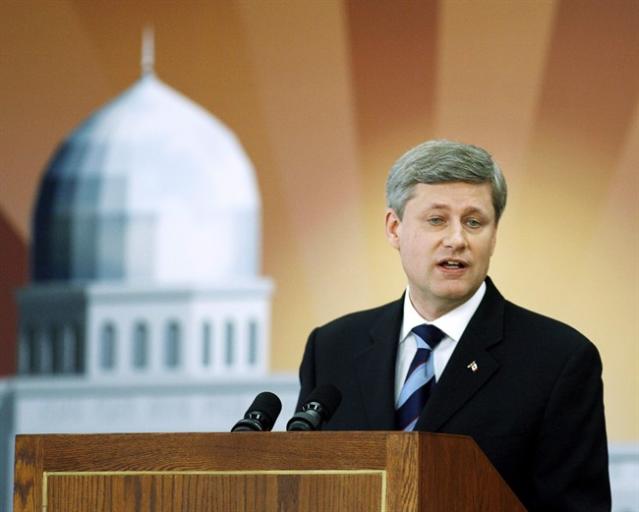 Canada Politics
Canada PoliticsHarper could be the most powerful political executive in the world: professor

Stephen Harper has been accused of having a "my way or the highway" attitude towards governing the country.
Now with a majority government, some would argue that attitude has been exclaimed.
This past week, the prime minister has flexed his proverbial political muscle once again with the introduction of a draconian terror law which will allow for police detention of suspects without charges for up to 72 hours and for judges to compel witnesses to testify at trial.
The laws were first introduced in 2001 following the Sept. 11 attacks in the United States, but opposition parties blocked their renewal in 2007.
Now with a majority, Harper is free to push this legislation through. In fact, he's pretty much able to do what he wants - with very few obstacles.
Although it seems benign, Harper ordered all Canadian embassies to have a portrait of the Queen hung prominently. He makes no bones about being a staunch monarchist.
Ralph Heintzman, a professor at the University of Ottawa and head of the federal Office of Public Service Values and Ethics, says Canada might just have the most centralized political system in the world.
"The Canadian prime minister is probably the most powerful political executive in the world because there is nothing, once he has a majority in Parliament, to restrain him or her," he told the Winnipeg Free Press in a recent interview.
"In most other Westminster democracies, there are peculiarities of the system, which act as checks, formally or informally."
Heintzman cites parliamentary systems in the U.K. and Australia where the party leaders are chosen by MPs, as opposed to party members like in Canada.
"That turns the power relationship upside down," he says. "The leader controls the caucus. The caucus does not control the leader."
In other words, members of Parliament in Canada are inclined to vote the way the prime minister wants them to or risk losing opportunities to serve on cabinet or even in caucus. In the U.K. and Australia, MPs yield more power over their leader.
Canada's prime minister even has more power here than the president does in the United States. The American head of state can find his or her agenda blocked by either or both houses of Congress as well as a politically activist Supreme Court.
But in Canada a prime minister with a majority government and an appointed, unaccountable Senate has no real obstacles to passing bills.
For the next four years at least, it might just be appropriate to call him King Harper.
(CP Photo)

